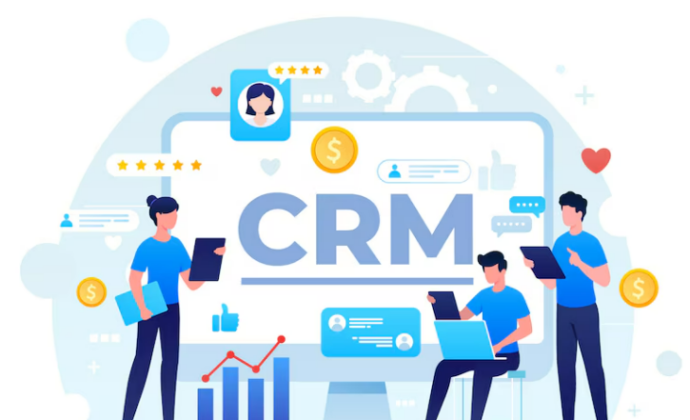
Spiff Salesforce Acquisition:
Leading CRM tool in the globe, Salesforce is well-known for always refining its products to enable companies to boost sales processes, increase income, and strengthen client relationships. Acquiring Spiff, a sales compensation management tool, is among one of its most recent strategic actions. This purchase looks to completely transform how companies handle the performance and pay structure of their sales forces.
We will explore the Spiff Salesforce acquisition in this blog article, together with what it implies for companies and how it improves sales success and compensation management inside the Salesforce ecosystem.
What Is Spiff and Why Was It Acquired by Salesforce?
Designed for sales compensation management, Spiff calculates commissions, bonuses, and other sales incentives automatically. Through its easy-to-use interface, Spiff lets sales teams monitor performance, guarantee proper payments, and keep openness about pay scales.
The choice of Salesforce to purchase Spiff is a result of its continuous attempts to offer companies—especially those with complicated sales compensation schemes—a complete, end-to-end solution. By including potent capabilities to control sales success and compensation in real time, all within the Salesforce ecosystem, the purchase improves Salesforce’s services.
Long a go-to tool for companies managing client connections, automating sales processes, and tracking success is Salesforce. Salesforce increases its capability to offer automated, simplified sales compensation administration by acquiring Spiff.
What Does the Spiff Salesforce Acquisition Mean for Businesses?
Automating commission computations depending on real-time sales data will help to eliminate hand mistakes and delays.
1. Streamlined Sales Compensation Management
Companies occasionally battled to manually or through third-party software handle sales compensation prior to the Spiff purchase. These methods were time-consuming, prone to errors, and occasionally lacked the visibility sales managers needed to make smart decisions.
Thanks to Spiff Salesforce connection, companies will be able to quickly manage their entire pay process from inside Salesforce. This spans:
- Automated commission calculations: Automate commission calculations depending on real-time sales data to remove hand mistakes and delays.
- Real-time updates: As agreements develop, sales representatives and management may see how their commissions are computed, guaranteeing openness and incentive.
- Customizable compensation plans: Companies can easily create complicated commission plans and bonus systems by customizing pay systems depending on certain corporate demands.
By automating these processes, Spiff and Salesforce can save businesses time, improve accuracy, and provide a better experience for both sales reps and managers.
2. Enhanced Sales Performance Insights
By including Spiff into Salesforce, sales teams can have more thorough understanding of performance and pay criteria. Sales managers can monitor pay costs, assess incentive program success, and spot chances to maximize their sales plans.
With Spiff’s advanced reporting and analytics, sales managers can:
- Track individual and team performance: Track each salesperson’s performance in relation to their targets and note top achievers.
- Evaluate the ROI of incentive programs: Evaluate several pay plans and adjust them for best outcomes.
Create actionable insights: Use real-time data to make informed decisions on compensation adjustments, performance targets, and sales strategies.

3. Greater Sales Rep Motivation and Transparency
Maintaining sales teams driven and focused on their objectives depends on openness in sales remuneration. Lack of knowledge on how pay is earned and computed is one of the main causes of great turnover in sales teams. By means of real-time commission and bonus tracking, Spiff’s interaction with Salesforce addresses this problem.
Sales reps can:
- Track their earnings in real time: With Spiff, sales reps can see exactly how their commissions are calculated and track their progress toward meeting their goals.
- Receive instant updates on payments: Viewed as agreements conclude, sales representatives can help to clear uncertainty and frustration about delayed payments by viewing commission distributions.
- Understand performance expectations: Simple, unambiguous pay systems enable salespeople to know exactly what they need to accomplish to get their bonuses and commissions.
By fostering greater transparency, Spiff and Salesforce can help sales teams stay motivated, reduce misunderstandings, and ultimately drive more sales.
4. Integration with Existing Salesforce Tools
A major benefit of Spiff Salesforce is its seamless integration with Salesforce’s tools. Many sales businesses use Salesforce, thus adding Spiff to this ecosystem helps with sales success and customer relationships.
The key integrations include:
- Sales Cloud: Sales Cloud’s interface allows sales managers to align performance and rewards by tracking sales opportunities and compensation data all in one location.
- Reporting and Dashboards: Spiff’s reporting features can be accessed directly from Salesforce’s powerful dashboard interface, making it easy to visualize compensation trends alongside sales performance.
- Automation: Salesforce and Spiff automation solutions reduce manual data entry, ensuring accurate compensation calculations and faster commission payouts.
This integration streamlines workflows and allows businesses to operate more efficiently without having to rely on multiple disconnected systems.
5. Scalability for Growing Sales Teams
Salesforce and Spiff’s automation tools can help to lower human data entry, therefore guaranteeing accurate compensation calculations and speedier commission payments.
Salesforce and Spiff help businesses scale their sales compensation processes by:
- Supporting multi-tiered compensation plans: Easily manage complex compensation structures for large or geographically diverse sales teams.
- Handling complex incentive models: Adapt compensation structures to different sales channels, team sizes, and performance metrics.
Automating compensation as your team grows: The automation features allow businesses to scale their compensation management without adding additional administrative overhead.
How Spiff Salesforce Integration Enhances Sales Operations
By combining Spiff with Salesforce, businesses can enjoy several operational benefits, including:
- Improved data accuracy: With real-time data flow between Salesforce and Spiff, businesses can ensure that their sales performance and compensation data are always accurate and up to date.
- Faster decision-making: Instant access to sales and compensation metrics empowers sales leaders to make quicker, data-driven decisions about performance and compensation strategies.
- Cost savings: Automating compensation processes reduces administrative work and the risk of errors, which can lead to cost savings for the business.
The integration of Spiff with Salesforce provides a comprehensive solution that aligns sales performance with compensation in real time, streamlining operations and improving overall business efficiency.
Conclusion
The Spiff Salesforce acquisition represents a significant step forward in how businesses manage sales performance and compensation. By integrating Spiff with Salesforce, businesses can automate commission calculations, track sales performance in real time, and improve transparency, which in turn boosts sales team morale and productivity.
- FAQ
Frequently Asked Questions
Early on Thursday, Salesforce’s 10-Q submission to the SEC at last disclosed the sum it paid: $421 million all-in. Said to be “acquisition date fair value,” that price comprises $379 million in cash.
Sales performance incentive fund formula, or SPIFF for short, is a short-term sales incentive program whereby sales representatives receive a bonus for either closing a transaction or booking a demo. Usually with cash value, SPIFF programs differ from conventional sales incentives.
$80/user/month
Salesforce Consultant Hourly Rate: Region-wise
Junior Salesforce Consultant: $60 to $100 per hour.
Between $110 and $150 per hour, mid-level salesforce consultant
Senior Salesforce Consultant: $160 to $200 per hour.
